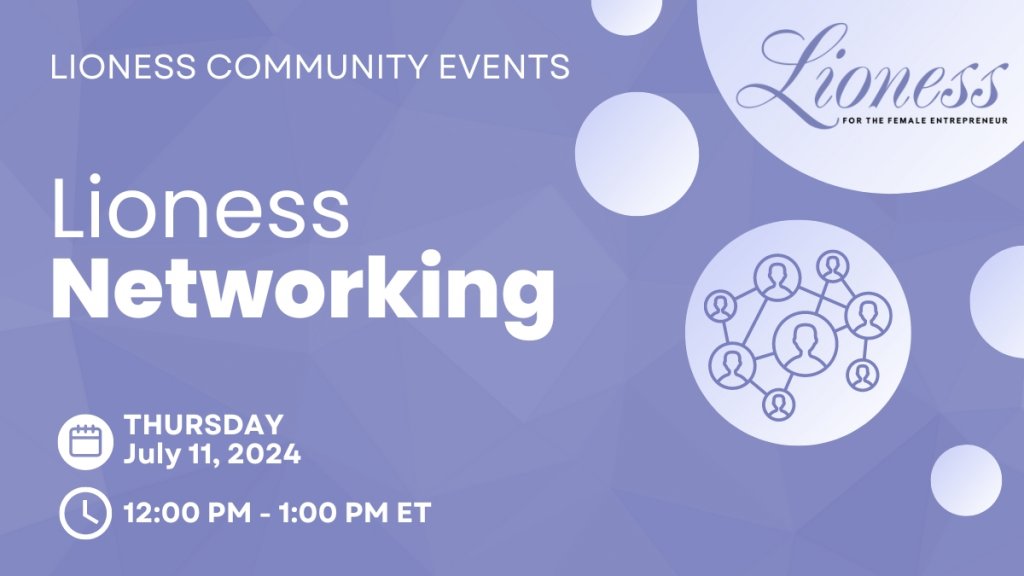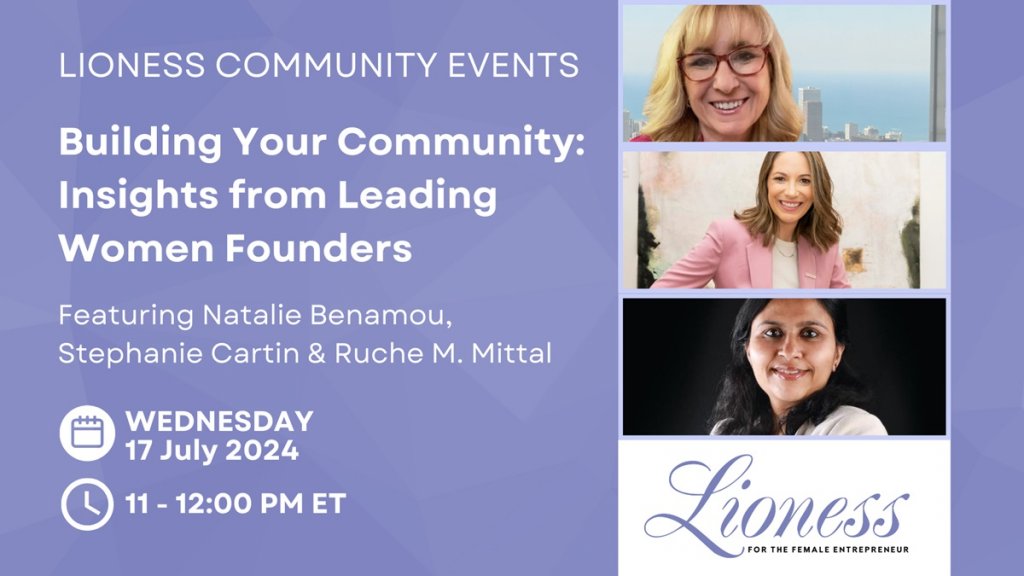It’s easy enough for companies to make a quick Pride post on social media during June. But what happens on July 1st – or the rest of the year? How can we support all of our employees and avoid these surface-level gestures? This means creating a workplace where LGBTQ+ employees feel safe, respected and valued. That’s not easy work, but it’s important work.
At our latest community event, “Leading with Pride: LGBTQ+ Allyship for Women in Business,” we connected attendees with two expert panelists: Kim Clark, a DEI expert and co-author of The Conscious Communicator, and Jessica Ellis-Wilson, a leadership consultant and chair of the National Diversity Committee for American Mensa.
You’ll want to watch the full webinar for our engaging and passionate discussion, but we’ve got some key takeaways on allyship in business.
What’s considered “performative” allyship?
If you’ve never seen it, this is a timeless video that encapsulates the problem in under 30 seconds. Companies will rainbow-wash their logos until the minute June is over – then the Pride posts disappear. It feels silly to say, but your LGBTQ+ employees still exist all year round.
True allyship requires understanding the crises faced by the community and committing to address these issues. There are over 550 anti-LGBTQ+ bills in the United States. This is a real issue impacting the rights of those around you.
(And before you say, ‘My employees aren’t LGBTQ+,’ – you don’t know. Less than 10 percent of trans employees are out at work. Conversely, research indicates that 95 percent of trans employees had a negative experience with a colleague because of their gender identity.)
How to create a more inclusive workplace:
- Show up consistently and celebrate more than June and Pride Month. National Coming Out Day is in October, and Transgender Day of Remembrance is in November. Other holidays, celebrations and anniversaries happen all the time.
- Provide comprehensive health benefits that cover gender-affirming care and support for all employees and their families. Think “parental leave” instead of “maternal leave.” Pay attention to policy changes, too. Talk to your benefits manager and ask, “What happens if same-sex marriage is repealed tomorrow? How can I still offer support?”
- Rethink exclusive language. It would take very little effort to switch “bring your husband/wife” to “spouse” or “partner.” Does your handbook or onboarding document use “he/she,” or a singular “they”?
- Your dress code doesn’t need to be gendered. Provide examples of what’s appropriate and let employees choose what they’re most comfortable with.
- If you have a physical office location, provide gender-neutral bathrooms or single-use stalls. This is especially important when more restrictive bathroom bills pass every day.
- Making a mistake doesn’t have to be catastrophic. Apologize and ask how to make amends (in the moment or in private later). “Calling in” is another effective strategy to correct yourself or call attention to a colleague’s microaggression.
- Commit yourself to being an open and engaged learner. Read on for resources to get you started.
Managing backlash from the public – and employees
In 2023, Target faced substantial backlash for its Pride collection, leading to threats against workers and destroyed displays. In response, the retailer scaled back its efforts; this year’s collection was reduced or outright removed, depending on the store. The instinct to avoid controversy isn’t illogical, but it carries an uncomfortable connotation.
“What that suggests is that the comfort of people who are angry about DEI is more important than marginalized people’s lives being affected by structural and systemic inequity,” said Ellis-Wilson.
Of course, this matter is much more complicated within the workplace. When navigating religious and cultural beliefs, the key point is this: everyone has the right to individual beliefs, but those beliefs can’t infringe on the rights of others.
“I had a difficult coming out because of my conservative Christian background, so I understand the importance of religious inclusion,” said Clark. “Inclusion means respecting everyone’s experiences without imposing our values on others. You have the right to your beliefs, but you also need to respect my right to live my truth. It’s about protecting each other’s rights and maintaining a collegial environment, even when our experiences differ.”
Where to learn more
The full webinar is packed with even more information, examples and advice – it’s worth the watch. Additionally, our panelists created a comprehensive booklet of resources to foster allyship in business: major LGBTQ+ organizations and charities, examples of common microaggressions, gender-neutral language swaps, research on unconscious bias, documentaries, podcasts, books, TedX talks and so much more!
Join our upcoming events
July Lioness Networking: Are you sick of AI yet?
July 11th | 12 – 1 p.m. ET
Lioness Networking is your monthly opportunity to expand your business network and connect with female entrepreneurs like you. This July, we’re talking all about artificial intelligence, from complaints and concerns to celebrations. Come prepared with any questions or success stories to share. No matter where you stand on the AI debate, we’re all navigating new tech together. Let’s start a conversation!
Join us for enriching insights and camaraderie. Through a series of engaging breakout rooms and guided discussions, we’re here to provide valuable support for founders everywhere.
Building Your Community: Insights from Leading Women Founders
July 17th | 11 – 12 p.m. ET
Your community won’t be built in a day – but you can get started now. Whether you’re looking to found your own community or thrive within an existing one, this panel is for you. Learn how these women leaders founded and sustained their vibrant entrepreneurial communities and how you can foster better connections with other members.
Hear from moderator Bobbie Carlton, founder of Innovation Women and Editor-in-Chief of Lioness Magazine, and our featured panelists:
- Natalie Benamou, founder of HerCsuite®, a powerful network supporting ambitious women and organizations.
- Stephanie Cartin, co-founder of Entreprenista, a digital platform for female entrepreneurs.
- Ruche M. Mittal, founder of Her Entrepreneurial Network (HEN India), a thriving community for women entrepreneurs in India.
By attending, you’ll walk away with practical tips and insights on how to build, nurture, and leverage your community for lasting success, whether you’re a leader or an active member. Don’t miss this opportunity to learn from the best and take the first step toward enhancing your own network.
Check out our last community event on engaging with your remote employees.








[…] our panel discussion on how to be a better ally for your LGBTQ […]